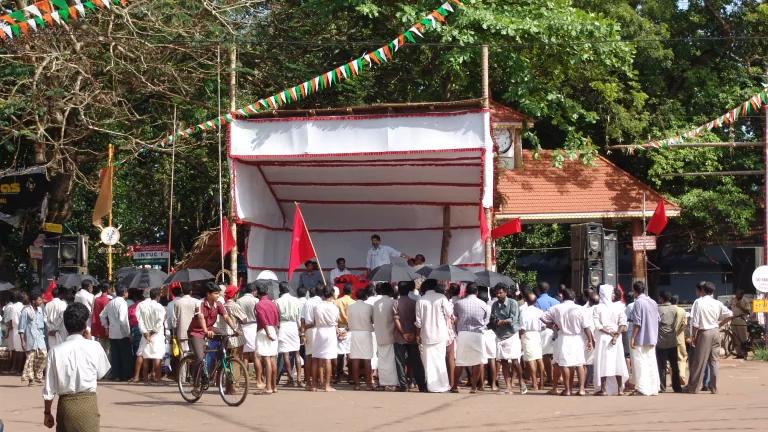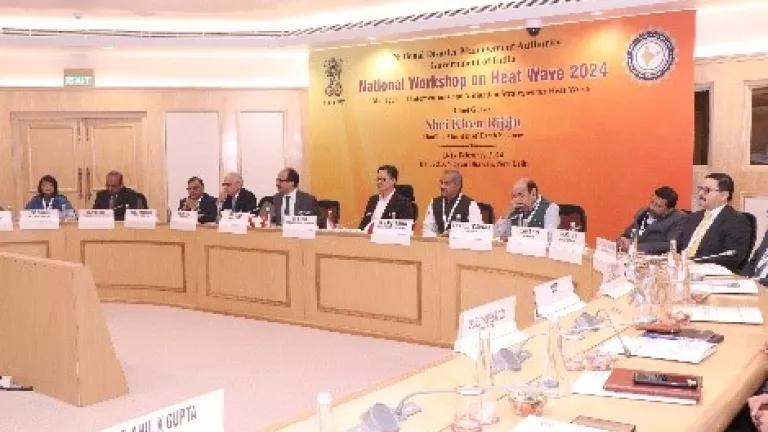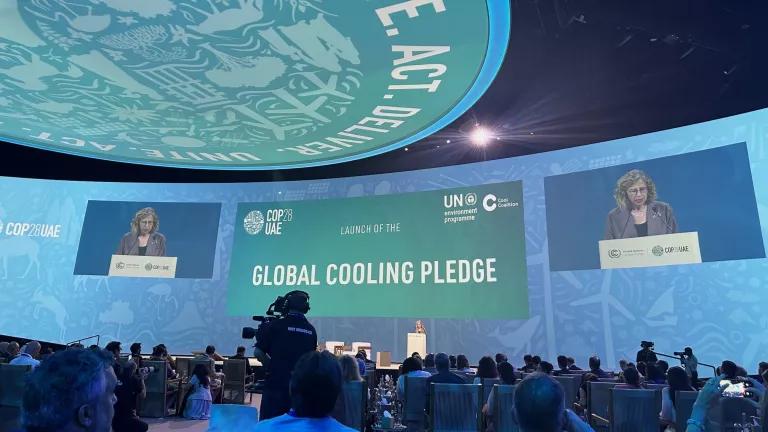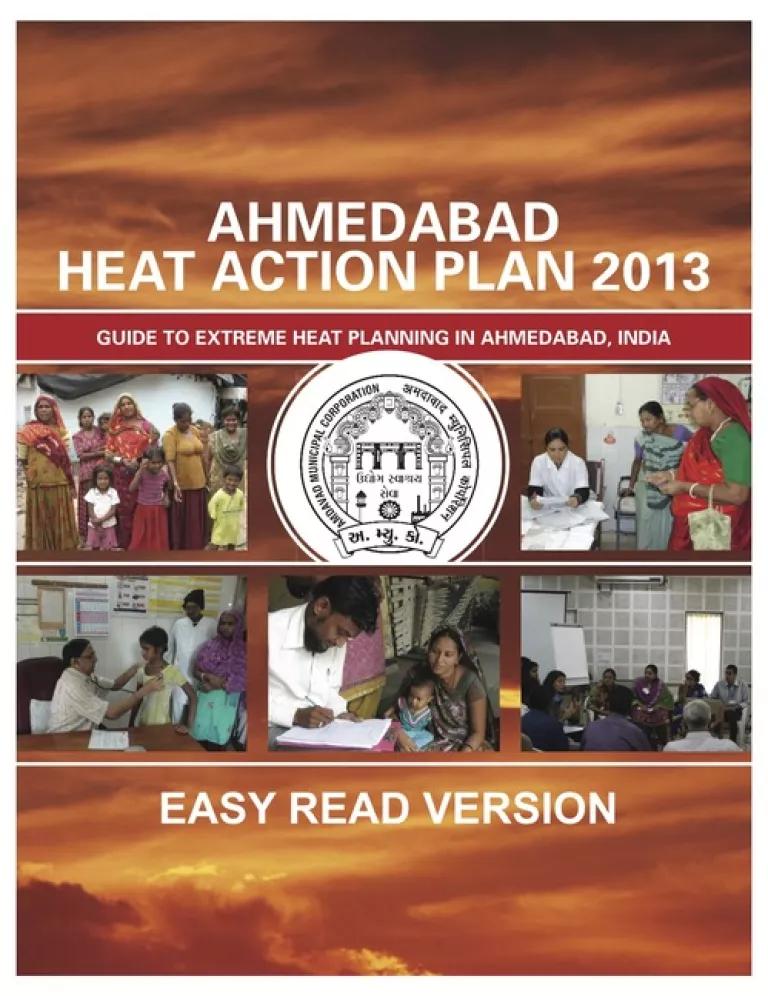
I am back in one of India’s fastest growing cities, Ahmedabad, to mark a historic day for the city as it launches a groundbreaking Heat Action Plan to protect residents from deadly heat waves. As temperatures climb throughout India, Ahmedabad is leading the way, becoming the first Indian city and the first city in South Asia to comprehensively address the threat of extreme heat caused by climate change. Ahmedabad’s Heat Action Plan will initiate an early warning system for residents, train medical and community workers to better treat heat-related illnesses, build public awareness of health risks, and coordinate an inter-agency emergency response effort when heat waves hit.
In short, Ahmedabad’s Heat Action Plan provides a roadmap to save lives during dangerous heat waves. With climate change threatening to raise temperatures by 2°C by the 2030s, this action plan couldn’t come at a more important time.
Temperatures were blistering as the Ahmedabad Municipal Corporation (AMC) Commissioner Shri Guruprasad Mohapatra led the release earlier today, offering a fitting backdrop to the challenges facing the city. More than 7 million people live in Ahmedabad, many of whom live in slums, without access to reliable healthcare, shelter, or proper hydration. Heat waves have already proven to be dangerous and deadly in in the city, leading to heat stress, heat stroke, and heart attacks. In May 2010, a devastating heat wave drove temperatures to a scorching 46.8°C (over 116°F), and hundreds of people died in the heat.
For Ahmedabad officials, this was a wakeup call. The city needed a coordinated plan to prevent future catastrophes. Rather than waiting for the next deadly heat wave to hit, Ahmedabad rose to the challenge, working with NRDC and other partners to proactively develop an early warning system and preparedness plan.
The Heat Action Plan describes both immediate and longer-term actions to increase preparedness, information-sharing, and response coordination to reduce the health effects of heat on slum residents and other vulnerable populations, including the young and elderly.
Ahmedabad’s groundbreaking Heat Action Plan includes three key strategies:
- Building public awareness and community outreach on the risks of heat waves and practices to prevent heat-related illnesses.
Ahmedabad agencies will disseminate multilingual pamphlets, advertisements, public messages, and other informational materials on heat-stress prevention and tips for residents to protect themselves during heat waves (see example below). - Initiating a simple early warning system to alert residents and coordinate an inter-agency emergency response effort before and when heat waves hit.
To ensure that residents are efficiently alerted of impending heat waves and given sufficient information once a heat wave hits, the AMC will create formal communication channels among government agencies, health officials, emergency response teams, community groups, and media outlets. - Building capacity among medical and community healthcare professionals to recognize and respond to heat-related illnesses.
Indian agencies will work to better equip medical professionals to offer heat-specific advice (on symptoms, diagnosis, and treatment) to their medical staff, and reduce mortality and morbidity through standard surveillance protocols. Link workers and other community health workers will also be trained to recognize heat danger and offer prevention tips for heat illness in slum communities.
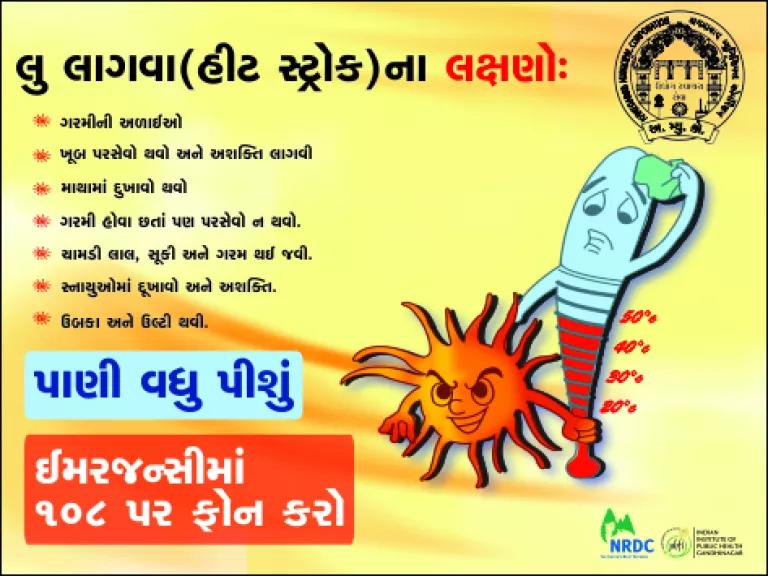
Heat Alert Ads to be posted on rickshaws, buses, and published in newspapers, in English (below) and the local language, Gujarati (top).
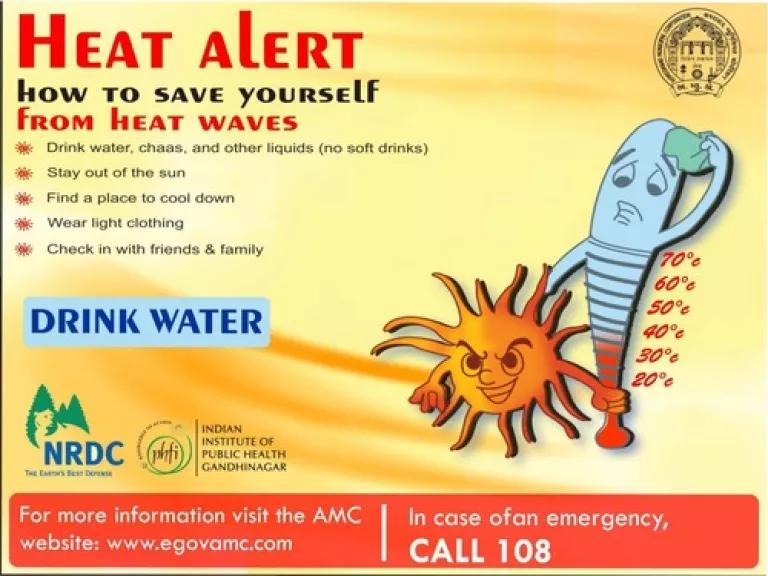
This plan is based on robust scientific research conducted during the past two years with our partners at the Indian Institute of Public Health (IIPH), Public Health Foundation of India (PHFI), Mount Sinai School of Medicine, Rollins School of Public Health at Emory University, and Georgia Institute of Technology. Our team and partners have collected and analyzed temperature data, mortality data from city hospitals, emergency ambulance call data, heat vulnerability surveys, results from focus groups with health care professionals, and information from interviews with government officials.
This is an important step for not only Ahmedabad, but also other cities throughout India and the region. Ahmedabad’s efforts are unique in South Asia, as countries and international organizations have yet to establish comprehensive regional heat preparedness plans. In recent years, the World Health Organization (WHO) has included among its goals the strengthening of health systems to cope with the health threats posed by climate change. Among seven nations hosting WHO pilot projects related to climate change and health, China has an early heat warning system planned.
Ahmedabad’s Heat Action Plan sets an example for other vulnerable cities and countries that will face increasingly unbearable temperatures due to climate change. NRDC is proud to collaborate with the AMC and other partners in developing and implementing the plan. We look forward to seeing the city increase its preparedness for heat waves, and hope that other cities will follow suit with similar roadmaps to protect their residents from deadly heat.
Co-authored by Meredith Connolly, NRDC Energy Law & Policy Fellow

